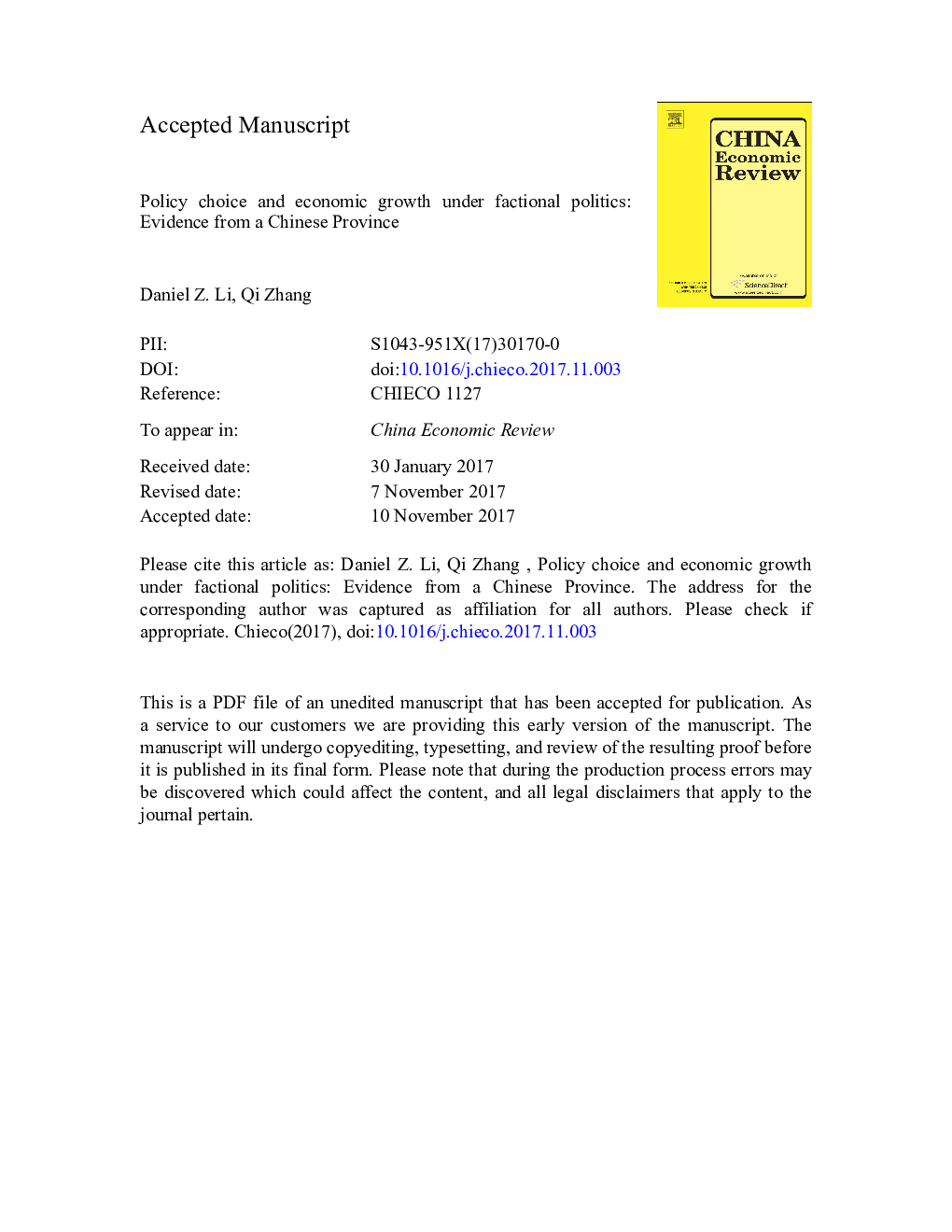| Article ID | Journal | Published Year | Pages | File Type |
|---|---|---|---|---|
| 7342414 | China Economic Review | 2018 | 49 Pages |
Abstract
This paper investigates how political elites make policy choices that have bearing on an authoritarian regime's economy, from the perspective of factional politics. A local leader makes policies primarily to secure his political survival, which is contingent on the support from either his higher-level patrons or his local grassroots constituents. Using a simple model, we show that a local politician with close factional ties to high-level patrons will invest more in sending loyalty signals to the latter to receive their protections, while a poorly-connected politician will make more effort to spur a broad-based economic growth that economically benefits his local constituents. Using a unique county level data on the factional politics of Zhejiang Province, China, we find that counties with weaker (closer) factional ties have lower (higher) tax burdens per capita, while spending more (less) on local public goods provision. The results are stable after various robustness tests.
Related Topics
Social Sciences and Humanities
Economics, Econometrics and Finance
Economics and Econometrics
Authors
Daniel Z. Li, Qi Zhang,
